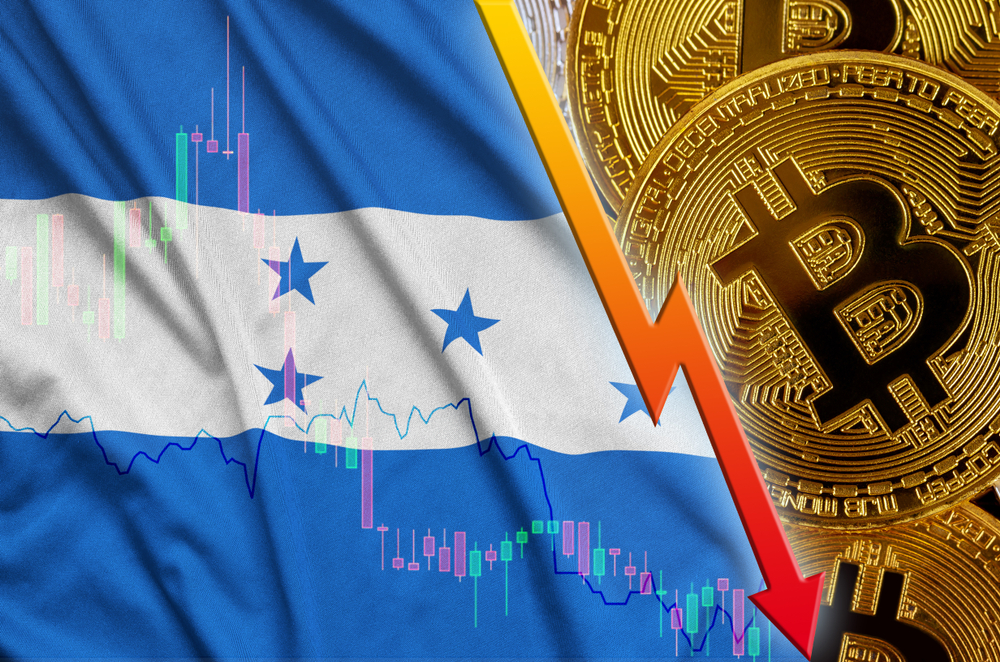Latin America has emerged as a crypto-friendlier territory than other regions in implementing pro-crypto policies. Nonetheless, Honduras has emerged as an outlier to the trend by ruling out crypto in banking alongside derivatives such as exchange-traded funds (ETFs).
The decree’s ban on crypto surfaces was captured in a circular conveyed by the Honduras National Banking and Securities Commission (CNBS). It forbids engagement in crypto-based transactions, positioning Honduras at odds with the crypto acceptance trend witnessed in Latin America and other regions.
Honduras CNBC Ditches Crypto Acceptance Trend
The CNBS circular captured President Marcio Sierra’s signature, detailing that the Honduran government was implementing the ban to safeguard the country’s financial system. Besides, the CNBS president indicated they were protecting the public, citing legal voids surrounding the underlying technology.
The Honduras central bank indicated that virtual currencies and crypto assets are yet to secure authorization, regulation, and issuance as financial assets. Their usage as payment and investment instruments within Honduras bestows the responsibility and risk to parties undertaking such operations.
The ban prevents the financial and insurance institutions from ever maintaining, investing and intermediating with cryptos, virtual and digital tokens not issued within and by the country.
The circular prohibited the financial and insurance institutions from offering services to parties dealing in cryptos. The ban extends to those trading in derivatives such as crypto exchange-traded products (ETPs).
The regulator urges financial institutions to create awareness plans to sensitize the public against the risks inherent in crypto assets, virtual assets usage, and investment.
Honduras Ban Differs from Crypto Friendly Reforms in Latin America
The regulatory action contrasts the move by other jurisdictions within Latin America with respective governments formulating crypto-friendly policies.
Honduras’ bans contrast with El Salvador, which granted Bitcoin legal tender status besides legalizing digital asset usage as a means of payment. On September 7, 2021, Bitcoin would become the second official currency of the country besides the United States dollar.
Argentina has, since President Javier Milei assumed office, signaled pursuits of a pro-crypto approach. The president has ditched the inconsistent views on Bitcoin and other cryptos as fiat substitutes that carry no value. Recently, Milei hailed Bitcoin as the natural response by the private sector after a lengthy period of charges leveled for promoting crypto Ponzi schemes.
Venezuela also amended its legal system to recognize crypto use as a means of payment. Brazil followed suit in passing the bill legalizing crypto payments. The move has seen Brazil emerge as the leading global country where most crypto ETFs are listed on the national stock exchange.
The Honduras ban targeting derivatives is at odds with the notable approval of spot Bitcoin ETFs by the US Securities and Exchange Commission (SEC). The approval granted on January 10 ended the lengthy decade characterized by perennial denials.
The move by Gary Gensler-led SEC to approve 11 spot ETFs saw the derivative fuel robust recovery in the Bitcoin price. The rally replicated across the crypto market to increase its total market capitalization to $2 trillion.
Honduras Ban Contrasts Procrypto Legislative Action by Japan
Honduras’s move contrasts with the move by countries across the Pacific led by Japan, Singapore, and Hong Kong. Recently, Japan approved crypto assets, recognizing them as viable investments that venture capital firms can pursue.
The legislative amendment constitutes Prime Minister Fumio Kishida’s new capitalism policy. Japan leverages the policy to nurture the country’s Web3 industry through a strategic investment environment and support for local startups.
A review of Japan’s recent initiatives shows that on Friday, February 16, the cabinet approved the inclusion of cryptos among assets that local investment limited partnerships (LPS) firms can acquire and hold.
The legislative action undertaken by Japan’s lawmakers comes in the wake of a refined policy by the Financial Services Agency (FSA) proposing to crack down on crypto peer-to-peer (P2P) trading activities.
FSA targets halting transfers to the providers of crypto-asset exchange services where the sender’s name differs from the account name.
